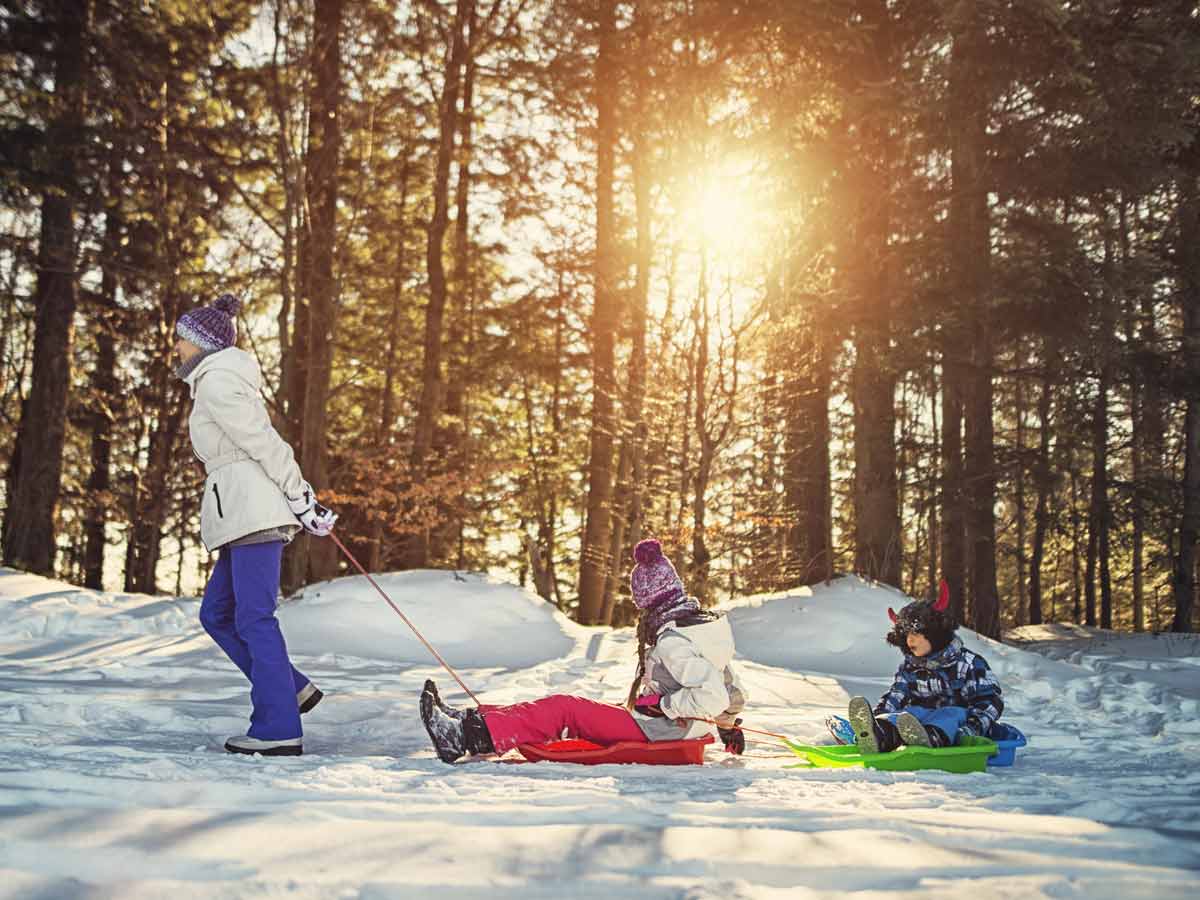Dress warmly
It's great to get outside in the winter—play with the kids, do your favourite winter sport or just go for a walk. Just remember not to overdo it in very cold weather. Aim to dress in several thin layers that you can remove as you warm up.
Stay safe indoors
There's nothing like a wood fire for a cozy ambiance. Just keep in mind that fire accidents happen more often around this time of the year. Always keep flammable materials away from the fireplace, ensure a good airflow and never leave the fire unattended.
Make sure your smoke and carbon monoxide detectors are functioning properly. Fire Prevention Canada recommends you change your batteries every year and replace smoke alarms every 5 to 10 years.
To prevent frozen pipes, we recommend setting your household temperature between 16 °C and 18 °C when you're away from your home.
Stay safe outdoors
Snowstorms, blizzards, wind chill, extreme cold, and freezing rain are daily hazards in the winter and hypothermia and frostbite are real risks. Hypothermia is when your body loses heat faster than it can generate. And frostbite is when your skin freezes and becomes damaged. So be prepared before you venture out:
- Check the weather and special alerts issued by Environment Canada.
- Dress warmly and cover exposed skin such as hands, face, nose, and ears as much as possible.
- Choose your clothes based on the weather forecast.
- Opt for warm, comfortable, and waterproof winter boots. High traction soles and crampons can help you avoid falling on ice and snow.
- Plan your travel and try to stay off the roads in very bad weather.
Take care when you're driving
Driving in bad winter weather can be dangerous. So get your car ready for winter by installing a set of winter tires. They're essential for driving safely on snow and ice. Summer tires start to lose grip when the temperature drops below 7 °C, so it makes sense to have snow tires installed, even if it's not required by law where you live.
Before you drive, always clear the snow off your windshield, lights, roof, and hood to ensure the best visibility. Remember to keep your speed constant and leave lots of space between you and the vehicle in front. If you start to skid, don't hit the brakes. Instead, steer into the skid and accelerate gently to regain control.
If your car breaks down, you could be stuck for hours in freezing temperatures before help arrives, so always keep an emergency kit in your car. It should include:
- Water
- Dry food
- Coat/blanket
- Flashlight
- Small snow shovel and ice scraper
- Booster cables
- Spare windshield fluid with antifreeze
- First aid kit
- Change of winter clothing and footwear
Take care when you're walking
Try to walk mindfully and step on areas of snow and ice already covered with salt. Keep your centre of gravity low to avoid slipping. Invest in a pair of crampons for your boots or find an alternative if your usual route is too icy.
Make sure drivers can see you. Wear bright colours and reflective bands, especially when you're walking at night.
Keep children and the elderly safe
Children and the elderly are more vulnerable in the winter.
Always supervise children when they play outside and plan short warm-up breaks during a play session. Choose playgrounds close to home and avoid letting your children out during extreme weather conditions or if the temperature drops below -15 °C. Dress children in layers that can be put on and taken off easily.
Check on elderly friends, relatives, and neighbours regularly. Ask if they have everything they need, such as groceries and other daily supplies. And make sure they get help if they need it.
For more on this topic, visit:
Safety tips for winter walking
Winter safety: advice for parents and kids

